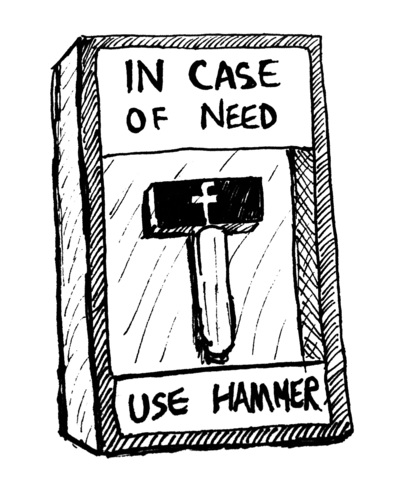
Facebook is the new Excel
If you’re building a SaaS startup, then your biggest competitor isn’t a competitor. It’s Microsoft Excel. That was the mantra a few years ago. Add in Google Docs and it still holds true. Contact lists, mailing lists, accounts, invoicing, market research, budgets, checklists, schedules, timetables: Excel is the hammer of choice for anything that looks like data in a business, large or small.
Today, if you’re building a service for communities or individuals then Facebook is almost certainly your biggest competitor. B2B: Excel, B2C: Facebook.
People are increasingly using Pages, Groups and Albums for all kinds of things that would previously have justified a whole startup.
Job hunting? There’ll be dozens of job groups in your city. Working on a car restoration? There’s a group for that. Looking to buy or sell something? Local groups. Add in the fact that every Facebook group and page basically comes with a free mobile app (albeit embedded in Facebook’s app).
There’s an increasing threshold of utility for people to move away from Facebook: the place where everyone already has accounts, receives notifications and visits on a daily basis.
By threshold of utility I mean the features that make your service better than a Facebook group or page. Pitching Squarespace against Facebook Pages, for example, Squarespace provide better search engine discovery, and more scope to express branding and convey detailed information. For some businesses that’s important, but for many others it’s of zero benefit. They get everything they need from a Facebook page - opening hours, a map, and some photos.
Similarly with groups: A Facebook group listing apartments to rent will lack any form of domain-specific search fields. You can’t search by rooms or area. But it’s very accessible and you can search by keyword easily enough. You can also see other people’s comments on places, which might be an advantage over a standalone property search site.
One piece of good news though, is that contacting people through these groups and pages is actually easier than ever now. So if you’re not frantically spamming everyone, then you’ve a great opportunity for engaging with customers.
Any startup should include Facebook in its competitive analysis. How are people using it? Does it work? What’s missing? And be open to the idea that a Facebook group that does even 80% of what people want might easily be your toughest competitor. You can guarantee that Facebook has already signed up 99% of your potential userbase.
I’m starting to write a little more frequently - follow me on twitter @alexmuir if you like the way I waffle!